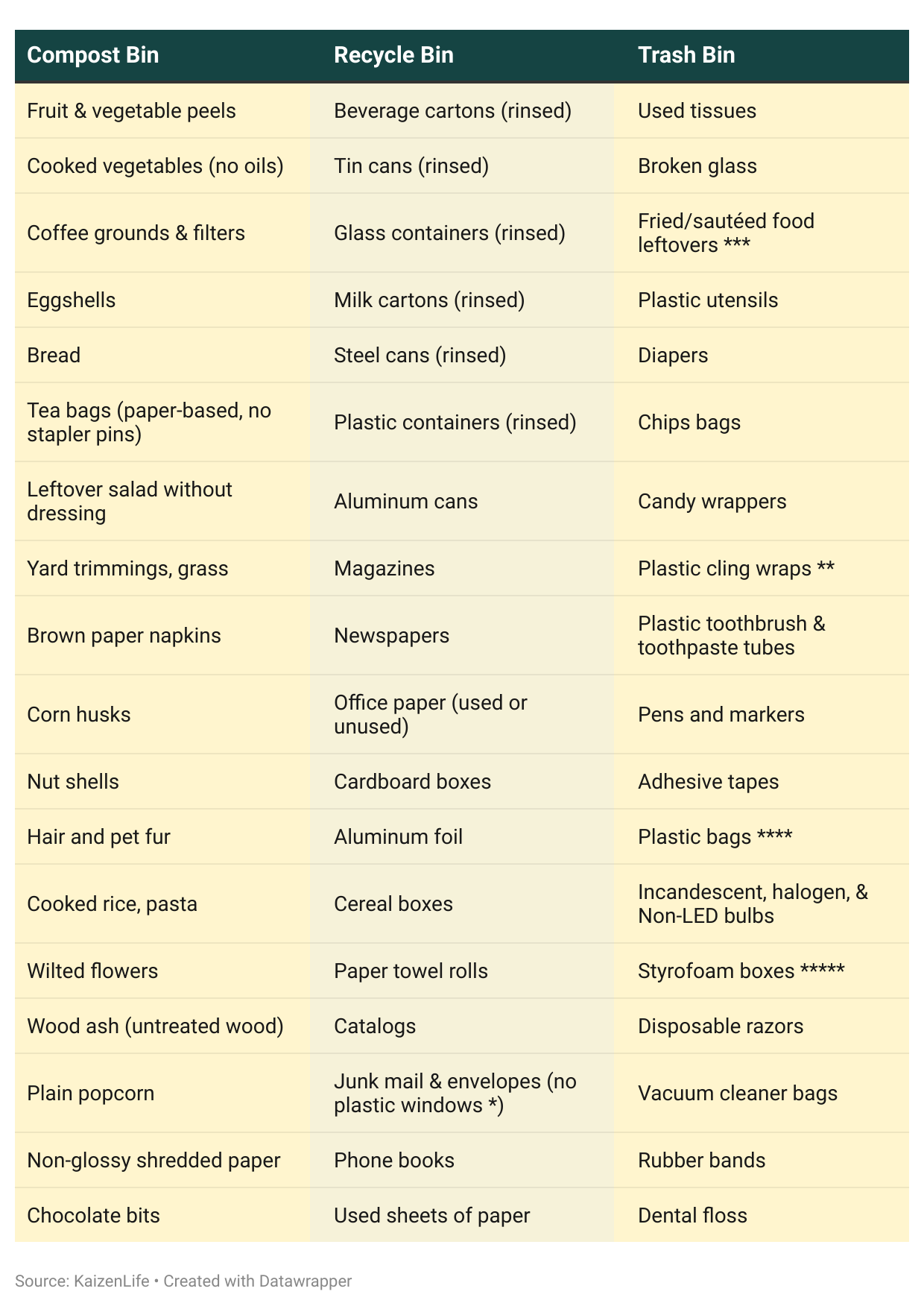A square block fits perfectly only in a square hole - don't you agree? Then why do we carelessly throw our garbage in the wrong bins? Proper waste management, especially in food waste, recyclables, and general garbage, has significant ecological and health benefits. Let's learn more. Remember to look at the table at the end of the post for easy categorization of your daily trash.
Why should I bother segregating trash at home?
Because your health and well-being are worth it! Segregating waste at home is a crucial practice for maintaining a sustainable environment. If you plan to live on this planet and are paying your taxes, then you should segregate your trash. If not, please do it for the rest of us.
Did you know that contaminated loads require more sorting and cleaning, which increases operational costs and higher rate of rejected materials? With new policies restricting overseas shipping of contaminated loads many recycling facilities are unable to operate efficiently, causing shutdowns. As of 2023, the overall recycling rate in USA is at 32% only! When everything's piled up into one big heap it fills up landfills too fast, pollutes the environment, exposes us to hazardous materials and increases diseases. But wait, there are economic consequences too. Higher waste management costs, inefficiencies, and lost value of recyclable materials ... all come from our taxpayer money! When it comes to plastic, not all of it is recyclable and not forever. USA's plastic recycling rate is under 6% today. The best approach for us as consumers is to simply avoid it wherever we can.
* If it comes directly from organic matter (plants & animals) and is minimally processed, it can go back to them to complete the cycle, as compost. 👍
* If your disposable container was used for food or drinks, rinse before dropping into the recycling bin. Don't be the one to destroy an entire batch of recycling!! 😑
* Don't recycle it just because it's plastic! 🤦♀️ Check the code within the chasing arrows. 1-PET, 2-HDPE and 5-PP plastic can be recycled. But, try your best to avoid plastics wherever you can.
* It is NOT OK to dump your kitchen scraps in plastic bags! 🚫 ... 'Coz then, what's the point?
* Electronic waste should not be in compost, recycle or trash bins.
Ok, I'll segregate. But what about ...?
What about others that don't bother doing it?
Yes, it feels quite pointless if only a handful of people segregate their trash. Taking responsibility for personal waste management is part of a broader commitment to environmental sustainability. It's not so bad to be the first to set an example😃. Influence your community and social circles to do the same.
What about my garbage management facility that is mixing up everything?
Many of us are skeptical about segregating waste at home, especially when they hear reports that waste is mixed together at facilities. This skepticism is understandable, but it's important to consider the broader picture. Segregating waste at home is a critical first step in the recycling process. If you find out that a facility is mixing waste, or is not sending it to "high diversion" centers, please report them! Even if some facilities mix waste, many do not, and so it does not mean everyone should stop this first step. Proper segregation helps ensure that the maximum amount of waste can be recycled effectively.
How well do you know your Garbage bins?
Find out with ‘reel’ quick quizzes –
Easy categorization of your daily trash
We make split second decisions several times a day about which bin an item of trash should go into, and then get on with our daily chores. The following table categorizes some daily items that we discard.
Several patterns jump out here. Can you think of more? Drop in your comments!
* Plastic windows - Promotional letters or envelopes have small transparent plastic windows usually made from a thin film of plastic that is not recyclable.
** Plastic cling wraps - They damage the recycling machinery and hence go into the trash bin, not the recycle bin.
*** Fried/Sautéed food leftovers - Plan ahead and consume early to avoid throwing away.
**** Plastic bags - They are made of 3-LDPE plastic and are not accepted at most recycling facilities. Just reuse them to avoid bringing in more. 🤷♂️
***** Styrofoam boxes - Do you really want to be drinking and eating in plastic? Really? When you have a choice, stay away from it.






Very well written and useful article. I wish every school district uses this information in elementary schools to impress these ideas on young children.